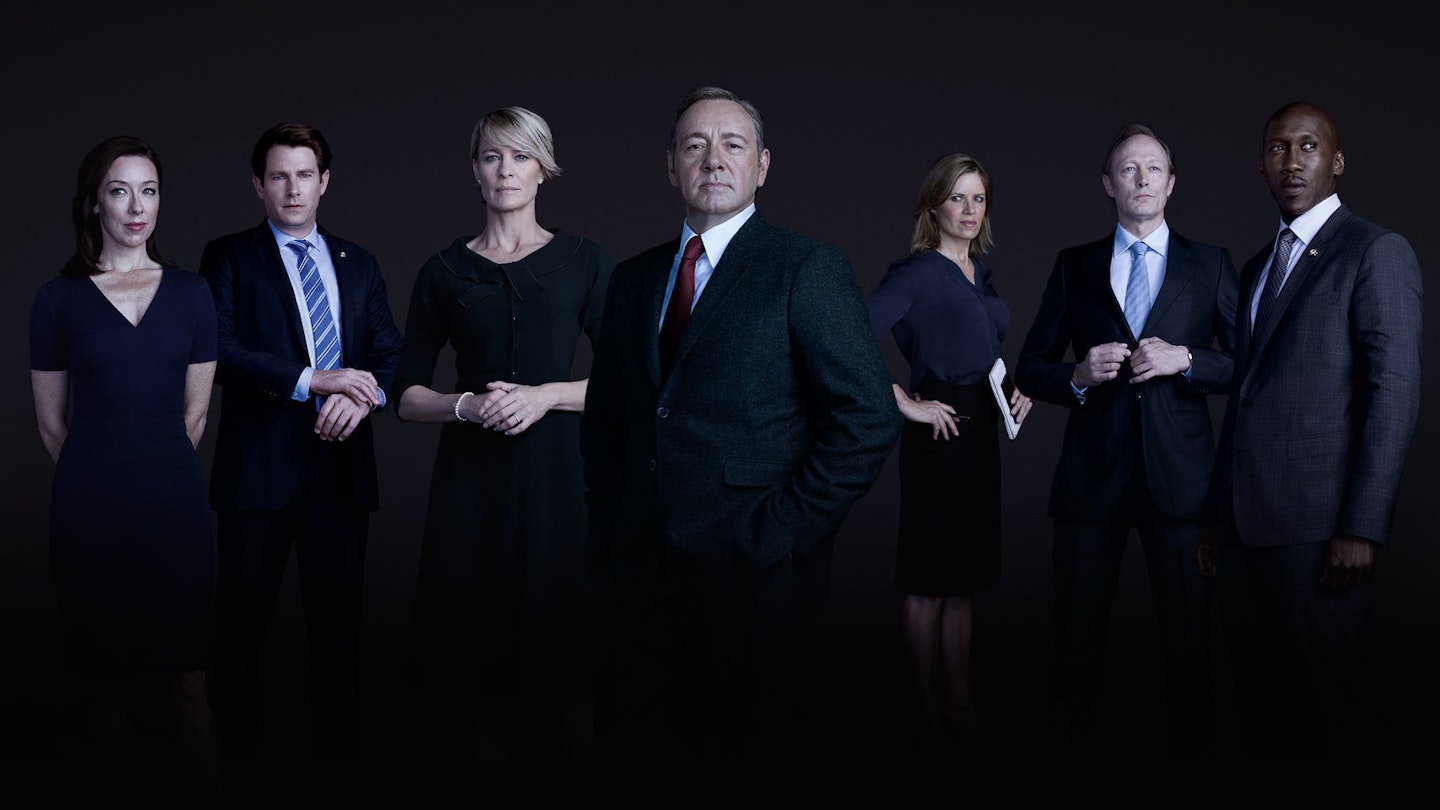Were told it does, that there must be someone to slay the monster, to overcome adversity and be better at the end than they were in the beginning. Storytellers are criticised for failing to offer characters who are likable, or to whom an audience can relate, as if the only stories of value are those in which we can imagine ourselves. In its second season, House Of Cards has decided that it has no time for heroes. This is now a test of how far an audience will follow a man
no, a man and a woman on a descent into evil, in which the endgame is not retribution but, one way or another, absolute destruction. The question is whose destruction that is and what will be left when it comes, but so long as it maintains the current level of ghoulish fun, this immorality play can run and run until all our souls are blackened by association.
If Season 1 had some intent to be a despairing portrait of politics and the way that self-interest will almost always come before public duty, Season 2 uses politics simply as a ladder for Frank Underwood to climb. Now Vice President, Frank, played with such delight by Kevin Spacey that you imagine he might do it for free, is always looking for the next rung. Theres not a clear reason why Frank wants absolute power, but its enough that he does. Power can be its own motivation, the hunger for more growing every time you get another taste. The way Frank gains his advantages are no longer logical or even necessarily believable in a real-world sense, but it doesnt much matter. There are elements that youd get in any show set around the White House cyber-terrorism, big-business buying power, other countries being sneaky but theyre cartoonish, broad-strokes stuff. Were into operatic drama now. If youre looking for a dark West Wing, this isnt it. Its more a dragonless Game Of Thrones, where political scores are as often settled with death as debate.
Frank is no longer the shows best character. The greatest triumph of Season 2 is in meeting the potential of Claire, played by Robin Wright with the stillness
of a hunting animal, and making her the equal of her husband, but more complex and perhaps even more despicable. While Frank is a man who has crushed his moral compass to dust, Claires still functions, though
it spins wildly. Frank schemes like a brilliant child, his motivation rarely more complicated than simple revenge or a need for superiority. Claire sometimes starts out trying to do good, or seeming to, such as in her project to bring greater scrutiny of sexual assault in the military, spurred by a horrific experience in her youth. Then shell throw her own feelings under a bus along with those of anyone else if it looks for a moment like she wont win. We dont know what Claire wants. We dont even know that Claire knows what she wants,
but it becomes clearer that she has so committed to her current path that turning back or veering off is unacceptable, as is failure from anyone around her. There are several wonderful scenes in which we see Claire eviscerate her husband for failing to maintain his part of their deal, suggesting that as long as Claires around, Frank will never be the most powerful person in the room.
If there is a downside to making these two so deliciously terrible, its that a villain still needs a nemesis, and if its not going to be someone whos as good as they are bad, then it needs to be someone of equal or greater villainy. House Of Cards hasnt found that yet. By the end of the series Frank has squashed everyone who endangers him like so many bugs, and the billionaire businessman Raymond Tusk, who seems most likely to derail Frank, is mostly just a man on a phone. If it is to be a show about the absolute corruption of absolute power and theres an argument that its about nothing else, as empty at its centre as Frank Underwood then it needs something apparently insurmountable to stand in the way of absolute power, or to corrupt it first. It needs to keep us really rooting for the bad guys. Then who needs heroes?
